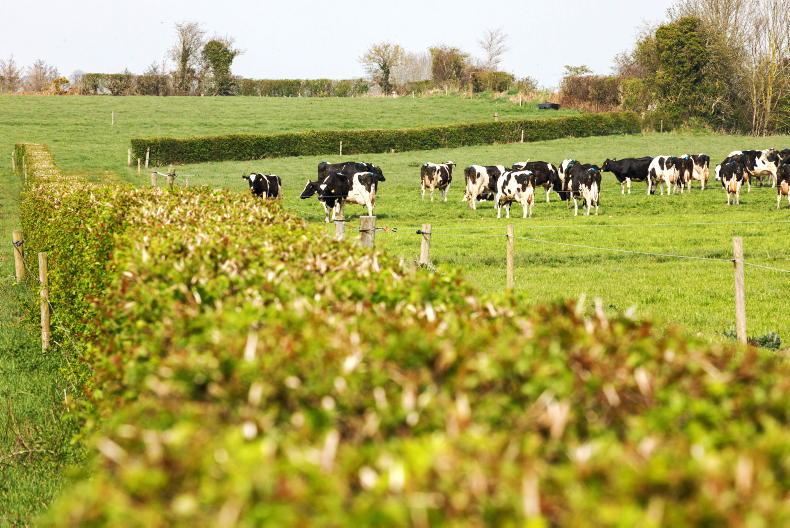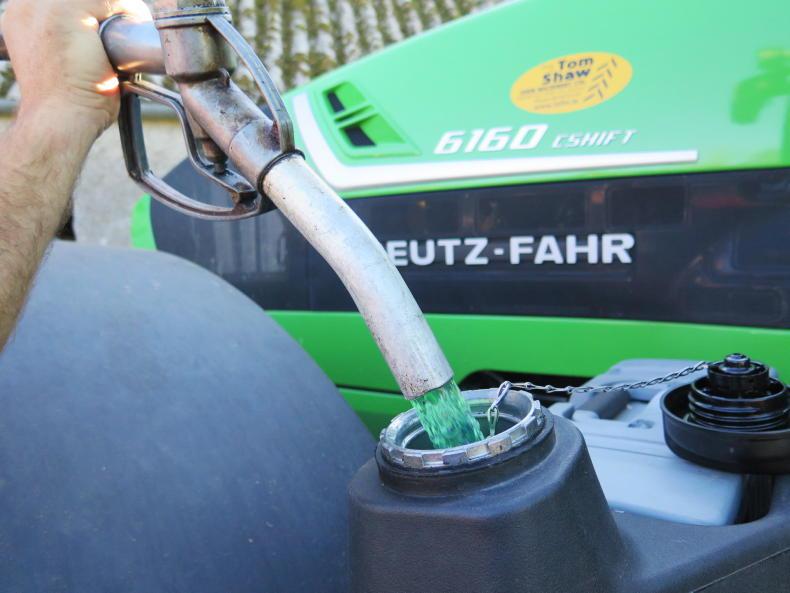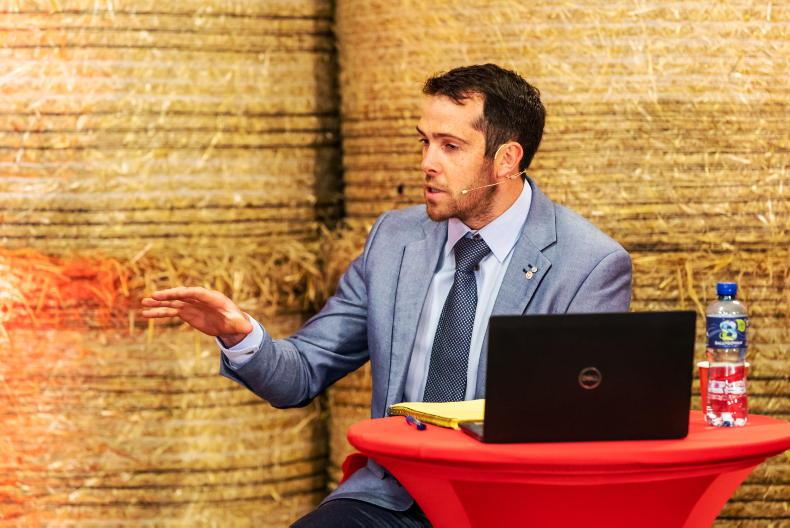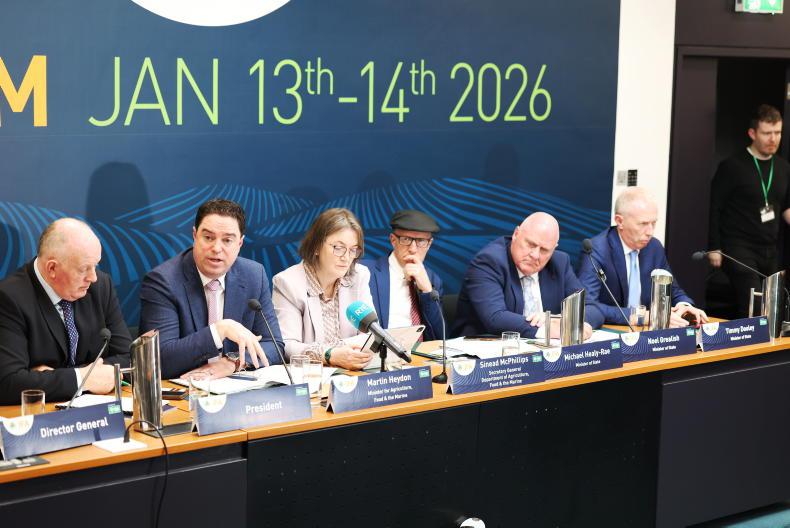It’s been a rollercoaster year so far and with Brexit on the horizon and COVID-19 resurging, Budget 2021 will be a blockbuster.
Minister for Finance Paschal Donohoe and Minister for Public Expenditure Michael McGrath are planning for a €21bn deficit and the feeling is that people have had enough of surprises for one year.
The Irish Farmers Journal team will be providing comprehensive live budget coverage on Tuesday on www.farmersjournal.ie, but here are the areas we think farmers should be focused on.
As revealed by the Irish Farmers Journal, the oft-promised and hotly anticipated ‘new REPS’ is now unlikely to get under way until 2021.
In order to be convinced that they weren’t sold a pup in the last election, farmers will be anxiously waiting to see that there is some budgetary allocation made for the scheme in Tuesday’s budget.
The size of that allocation will give some indication of when the Government intends to bring the new scheme into play.
In the meantime though, there are €215m reasons why the current schemes will need to be extended.
Farmers in GLAS, TAMS, BDGP and the organic scheme are all facing the end of their payments between now and 31 December. Farmers in GLAS alone are facing the loss of €150m when their contracts end in December.
Scheme extensions are both needed and expected, although the BDGP, ending next month, may be more likely to be replaced by a BEEP-style scheme than to be extended.

TAMS, which has featured more rollovers than Shep the dog, is also due to end soon.
Given its popularity, massive oversubscription rates and the fact that it generates spin-off employment for thousands of rural businesses, it would be disappointing for many if it was not extended.
Minister for Finance Paschal Donohoe has indicated that he will leave income tax, universal social charge (USC) and PRSI all fairly unchanged this year, presumably in an effort not to rock the boat further in a year that has been hit by the tidal wave that is COVID-19.
That’s good news for those who work on farms as employees, but there are changes expected for self-employed workers such as farmers themselves.

It is mooted that class S PRSI contributions for self-employed workers, currently at 4%, will be increased in Tuesday’s budget, to bring the current rate in line with employers’ PRSI rates.
This is another step towards the Government’s intention to close the gap between both the tax and benefits for self-employed compared to employees.
The tax strategy group has suggested a 1.75% increase to 5.75%, which would cost an extra €875 on an income of €50,000.
The Government is expected to hike the carbon tax by €7.50t/ to €33.50/t, which will likely come into effect from midnight on Tuesday.
That will add 1.5c/l to a litre of diesel for the jeep and just over €85 to the cost of filling a 900-litre tank of oil for the house.
It will add 1.937c/l to the cost of a litre of green diesel, bringing the total carbon tax on agri diesel to 8.97c/l.
If a typical tank fill is about 2,000l, the expected increase will cost a farmer €38 every time the tank is filled.

The IFA has sought an exemption for green diesel from the carbon tax, but there has been no sign yet that this will be granted.
Farmers are currently entitled to claim back the tax in a refund, but the complicated process means that few do. Agri contractors, some of the biggest users of green diesel, are exempt from the refund system.
Land transfers, inheritance and stamp duty
Tax reliefs on capital acquisitions tax, capital gains tax and stamp duty are seen as critical to the transfer of farm land and agribusinesses from one generation to the next.
The most recent figures from Revenue (2018) show that 1,413 farmers claimed capital acquisitions tax agricultural relief, worth €159m.
Some 1,605 people claimed €27.5m in consanguinity relief on stamp duty. This relief drops the rate of stamp duty on non-residential farm transfers from 6% to 1%.

Some 1,128 young farmers claimed stamp duty relief on farm transfers in 2018, which was worth €14.6m to them.
The IFA’s farm business chair Rose Mary McDonagh has said that capital gains tax retirement relief was worth, on average, €355,795 to each claimant, while capital acquisitions tax agricultural relief has been worth €104,492 to each claimant.
While there are no major changes expected to these reliefs, there is always an edginess until the reliefs are renewed by the Minister for Finance.
The Department of Finance is examining how educational and age criteria vary across the different incentive schemes and reliefs open to young trained farmers, such as stamp duty relief.
The paperwork involved in training courses and certification, as well age limits, on some schemes is complicated.
Although this may not feature in Tuesday’s budget, it may be something that is developed over the coming months and may be one to watch for in Budget 2022.
Read more
Budget 2021: support for agriculture needed in face of COVID-19 and Brexit
GLAS set for rollover but REPS pushed back
It’s been a rollercoaster year so far and with Brexit on the horizon and COVID-19 resurging, Budget 2021 will be a blockbuster.
Minister for Finance Paschal Donohoe and Minister for Public Expenditure Michael McGrath are planning for a €21bn deficit and the feeling is that people have had enough of surprises for one year.
The Irish Farmers Journal team will be providing comprehensive live budget coverage on Tuesday on www.farmersjournal.ie, but here are the areas we think farmers should be focused on.
As revealed by the Irish Farmers Journal, the oft-promised and hotly anticipated ‘new REPS’ is now unlikely to get under way until 2021.
In order to be convinced that they weren’t sold a pup in the last election, farmers will be anxiously waiting to see that there is some budgetary allocation made for the scheme in Tuesday’s budget.
The size of that allocation will give some indication of when the Government intends to bring the new scheme into play.
In the meantime though, there are €215m reasons why the current schemes will need to be extended.
Farmers in GLAS, TAMS, BDGP and the organic scheme are all facing the end of their payments between now and 31 December. Farmers in GLAS alone are facing the loss of €150m when their contracts end in December.
Scheme extensions are both needed and expected, although the BDGP, ending next month, may be more likely to be replaced by a BEEP-style scheme than to be extended.

TAMS, which has featured more rollovers than Shep the dog, is also due to end soon.
Given its popularity, massive oversubscription rates and the fact that it generates spin-off employment for thousands of rural businesses, it would be disappointing for many if it was not extended.
Minister for Finance Paschal Donohoe has indicated that he will leave income tax, universal social charge (USC) and PRSI all fairly unchanged this year, presumably in an effort not to rock the boat further in a year that has been hit by the tidal wave that is COVID-19.
That’s good news for those who work on farms as employees, but there are changes expected for self-employed workers such as farmers themselves.

It is mooted that class S PRSI contributions for self-employed workers, currently at 4%, will be increased in Tuesday’s budget, to bring the current rate in line with employers’ PRSI rates.
This is another step towards the Government’s intention to close the gap between both the tax and benefits for self-employed compared to employees.
The tax strategy group has suggested a 1.75% increase to 5.75%, which would cost an extra €875 on an income of €50,000.
The Government is expected to hike the carbon tax by €7.50t/ to €33.50/t, which will likely come into effect from midnight on Tuesday.
That will add 1.5c/l to a litre of diesel for the jeep and just over €85 to the cost of filling a 900-litre tank of oil for the house.
It will add 1.937c/l to the cost of a litre of green diesel, bringing the total carbon tax on agri diesel to 8.97c/l.
If a typical tank fill is about 2,000l, the expected increase will cost a farmer €38 every time the tank is filled.

The IFA has sought an exemption for green diesel from the carbon tax, but there has been no sign yet that this will be granted.
Farmers are currently entitled to claim back the tax in a refund, but the complicated process means that few do. Agri contractors, some of the biggest users of green diesel, are exempt from the refund system.
Land transfers, inheritance and stamp duty
Tax reliefs on capital acquisitions tax, capital gains tax and stamp duty are seen as critical to the transfer of farm land and agribusinesses from one generation to the next.
The most recent figures from Revenue (2018) show that 1,413 farmers claimed capital acquisitions tax agricultural relief, worth €159m.
Some 1,605 people claimed €27.5m in consanguinity relief on stamp duty. This relief drops the rate of stamp duty on non-residential farm transfers from 6% to 1%.

Some 1,128 young farmers claimed stamp duty relief on farm transfers in 2018, which was worth €14.6m to them.
The IFA’s farm business chair Rose Mary McDonagh has said that capital gains tax retirement relief was worth, on average, €355,795 to each claimant, while capital acquisitions tax agricultural relief has been worth €104,492 to each claimant.
While there are no major changes expected to these reliefs, there is always an edginess until the reliefs are renewed by the Minister for Finance.
The Department of Finance is examining how educational and age criteria vary across the different incentive schemes and reliefs open to young trained farmers, such as stamp duty relief.
The paperwork involved in training courses and certification, as well age limits, on some schemes is complicated.
Although this may not feature in Tuesday’s budget, it may be something that is developed over the coming months and may be one to watch for in Budget 2022.
Read more
Budget 2021: support for agriculture needed in face of COVID-19 and Brexit
GLAS set for rollover but REPS pushed back













SHARING OPTIONS